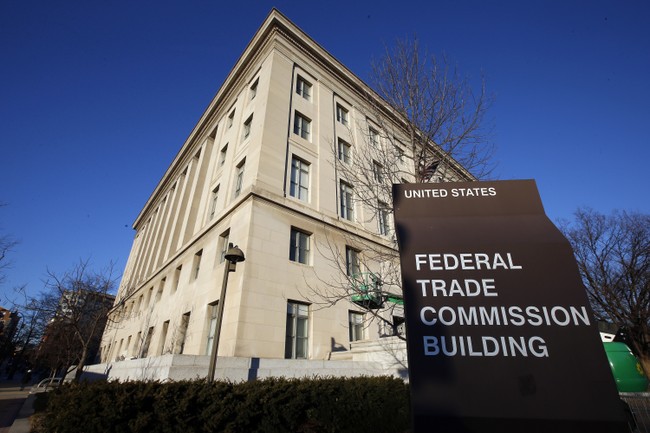
Wednesday, a sharply divided Federal Trade Commission voted 3-2 to ban non-compete clauses in employment contracts.
“Noncompete clauses keep wages low, suppress new ideas, and rob the American economy of dynamism, including from the more than 8,500 new startups that would be created a year once noncompetes are banned,” said FTC Chair Lina M. Khan. “The FTC’s final rule to ban noncompetes will ensure Americans have the freedom to pursue a new job, start a new business, or bring a new idea to market.”
The ban affects an estimated 30 million US workers who are subject to non-compete agreements, but the exact number is uncertain. A Labor Department study published in June 2022 estimated that non-compete agreements bind 18 percent of Americans, while other research suggests it could be closer to 50 percent.
BACKGROUND: Federal Trade Commission Votes to Kill Employers’ Ability to Use ‘Non-Compete’ Agreements on Employees
Almost simultaneously with the FTC press release, the US Chamber of Commerce and allied business groups filed a lawsuit in the Eastern District of Texas challenging the legality of FTC action.
But the chamber contends in its lawsuit that the agency lacks the authority to issue such a sweeping and consequential rule, and it is asking the court to overturn it. The chamber has opposed the rule since it was proposed 16 months ago, arguing that it would hurt businesses’ ability to protect proprietary information and reduce their incentive to invest in workers to prevent them from jumping to a rival employer.
“The Commission’s astounding assertion of power breaks with centuries of state and federal law and rests on novel claims of authority by the Commission,” the lawsuit states.
The Chamber is taking two distinct lines of attack against the FTC rule. First, the Chamber argues that the FTC lacks statutory authority because it involves a “major question.” The major questions doctrine is a principle of statutory interpretation applied in United States administrative law cases, which states that courts will presume that Congress does not delegate major political or economic issues to executive agencies. Looking at the FTC’s own summary, it is hard to get around the idea that a rule that affects 30 million workers is a “major question.”
This is the objection of the two votes on the FTC against the rule.
The two dissenting commissioners in Tuesday’s vote, Melissa Holyoak and Andrew Ferguson, questioned the FTC’s authority to issue the noncompete rule. The FTC lacks “the power to nullify tens of millions of existing contracts,” Ferguson said.
“The administrative state cannot legislate because Congress declines to do so,” he said.
Second, the Chamber claims that the FTC rule invalidates existing contracts that may cost the employer money and leave them with no way to recoup their losses, thereby depriving them of the property interest in the agreement. For instance, if you’ve tied the non-compete agreement to a deferred compensation plan as a quid pro quo, you lose the non-compete, but you’re still on the hook for the deferred compensation payment.
I’m deeply conflicted on this subject. I am entirely on the side of employers who don’t want employees walking off with intellectual property or clients. But some agreements seem more abusive than anything else.
Capital has been stealing labor’s lunch money the past 15 years, and, in related news, sandwich-makers at Jimmy John’s sub chain now have to sign non-compete agreements.
That’s right: Jimmy John’s workers have to promise not to take any of the trade secrets they learned assembling subs to any nearby sandwich shop for at least two years, according to Huffington Post. This is what happens when workers have zero bargaining power.
Even janitors and homecare aides have been required to sign non-compete agreements.
When a home care agency asks a low-wage worker to sign a noncompete, it’s usually because it doesn’t want to lose him, says William Dombi, director of the Center for Health Care Law, a public interest law firm established by the National Association for Home Care and Hospice, an industry group. “Those workers are very hard to come by,” he said.
The left thinks that labor shortages mean higher wages and better working conditions for workers. It doesn’t. Historically, societies have reacted to labor shortages with slavery, serfdom, and peonage. Locking a home health care aid into working for a particular company resembles how coal mines worked before the Mine Wars.
There has to be some way to allow maximum mobility of labor while keeping that labor from walking off with trade secrets, pricing information, intellectual property, and customer or client lists and using them to start a business or negotiate a better deal with a competitor. Some states have taken action.
Noncompete agreements have been prohibited in three states — California, North Dakota and Oklahoma — for more than a century. In recent years, 11 states and D.C. have passed laws that prohibit the agreements for hourly wage workers or those who fall below a salary threshold.
Other kinds of agreements have some of the same effects as non-competes but would not be covered by the FTC rule.
“The uncertainty created by these rules and the future litigation creates a risky landscape for businesses as they try to protect their most valuable trade secrets and confidential information,” said Berman, co-chair of her firm’s practice for business litigation, trade secrets and restrictive covenants, in an email. “I think we’ll see rapid movement by businesses to implement alternatives to noncompetes — such as non-solicitations agreements and deferred compensation plans — because they won’t take a gamble on protecting their proprietary information.”
Maybe that is the answer. The courts need to tell the FTC to fu… I mean, get lost and leave employment contracts up to the states.
